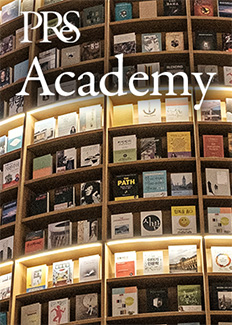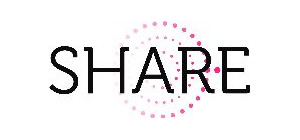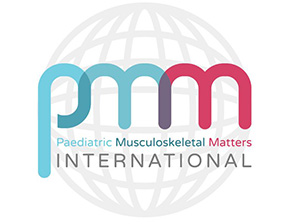The aim of the MAS/sJIA WP:
-
To promote knowledge and international multidisciplinary collaboration among experts in the field of MAS and systemic JIA.
-
To foster translational research in order to improve care and outcome of patients with MAS and patients with systemic JIA.
Number of members: 145
Members of the core team:
-
Chair: Claudia Bracaglia, Division of Rheumatology, IRCCS Ospedale Pediatrico Bambino Gesù, Rome, Italy; claudia.bracaglia@opbg.net (elected on 29th September 2023)
-
Secretary and Lead of clinical care pillar: Francesca Minoia, Clinica De Marchi Fondazione IRCCS Ca' Granda Ospedale Maggiore Policlinico, Milan, Italy; francesca.minoia@policlinico.mi.it (elected on 29th September 2023)
-
Lead of science&research pillar: Christoph Kessel, Department of Pediatric Rheumatology and Immunology, University Hospital Muenster, Germany; christoph.kessel@uni-muenster.de
-
Lead of training&education pillar: Sebastiaan Vastert, Pediatric Rheumatology and Immunology, University Medical Center Utrecht, the Netherlands; b.vastert@umcutrecht.nl
The core team closely collaborate with:
- EMERGE representative: Merav Heshin-Bekenstein, Dana Children's Hospital, Tel Aviv Medical Center, Tel Aviv, Israel; meravheshin@gmail.com
- Liaison for cooperation with CARRA: Grant Schulert, "Speaking the same language: international cross-validation of emerging biomarkers for juvenile idiopathic arthritis" - Susan Shenoi "An international consensus core dataset for systemic JIA"
- AHP representative: (AHP representative position open for applications)
- Patient/Parent associations: ENCA and systemic JIA Foundation (patient/parent representative position open for applications)
MAS WPs meetings
The WP arranges 1 annual meeting in presence during the PReS Congress.
Since 2023 the WP arranges also 2 web-meetings during the year, to discuss ongoing projects and to host educational talks from experts in the field of sJIA and MAS
Currently 97 PReS members usually joining the MAS/sJIA WP activities and all members receive regular communications and invitations by e-mail.
2023 Educational activities – C. Bracaglia
In 2023 the WP organized 2 web-meetings, to discuss ongoing projects and to host educational talks from experts in the field of sJIA and MAS. In particular:
- 1st MAS/sJIA WP web-meeting (February 14th, 2023; educational talks by Peter Nigrovic - The conundrum of lung disease in sJIA and Michael Jordan – Hyperinflammation in HLH, the hematologist perspective)
- 2nd MAS/sJIA Virtual Meeting (June 13th, 2023; educational talks by Pui Lee – Implication of mTOR in sJIA pathogenesis and Randy Cron – Hyperinflammation in HLH, the rheumatologist perspective)
Recordings of both meetings are freely available on MAS/sJIA web-page
Update on the METAPHOR project - Optimizing treatment in sJIA and MAS: a PReS/PRINTO initiative (PReS/PRINTO Grant 2021) – F. Minoia
AIM: to capture the real-life treatments strategies currently available for sJIA and MAS, by means of a web-survey involving pediatric rheumatology centers of the PReS/PRINTO network and the pediatric hemato-oncologist community. Furthermore, to evaluate patient perspective on major challenges and unmet needs in treatment by a specific section of the survey developed in collaboration with patient association (the Systemic JIA Foundation).
PROJECT STATUS: After a systematic literature review on MAS treatment, a panel of 22 international experts identified the most relevant topics to be included in the first survey (MAS treatment). In the meanwhile, the survey dedicated to and developed by patients is being forwarded to parents who are part of the Systemic JIA Foundation parent network.
The survey on MAS treatment has been recently sent by email to PReS/PRINTO members and it’s currently ongoing. Participation is possible until November 5th, 2023; if you did not receive the invitation email by PRINTO, please check your spam inbox or contact printo@gaslini.org to participate.
PIs and contacts: Francesca Minoia, (francesca.minoia@policlinico.mi.it); Bas Vastert (b.vastert@umcutrecht.nl); printo@gaslini.org)
Update on Speaking the same language – international cross-validation of emerging biomarkers for juvenile idiopathic arthritis (PReS/CARRA Grant 2021)
This year a detailed update of the project has been presented by Christoph Kessel in an oral presentation during the PReS Congress.
AIM: cross-validation of major emerging sJIA and MAS biomarkers across different measurement platforms and different international centers involved in CARRA and PReS in order to define uniform standards. The study has two arms: 1) Participating centers (PReS: Roma, Utrecht, Leuven, Munster; CARRA: Cincinnati, Philadelphia, Toronto, Vancouver) are supplied with healthy donor serum samples spiked with defined concentrations of recombinant IL-18, S100 proteins, CXCL9 and sIL-2R. These samples are prepared and shipped from Munster. 2) Participating centers are supplied with patient samples from the FROST biobank.
PIs and contacts: Christoph Kessel (christoph.kessel@uni-muenster.de); Grant Schulert
Update on PReS/CARRA collaboration projects
- An international consensus core dataset for systemic JIA – M. Marques
On behalf of PReS MAS/sJIA WP: Francesca Minoia and Claudia Bracaglia
On behalf of CARRA sJIA workgroup: Karen Onel, Susan Shenoi, Marinka Twilt, Michael Ombrello, Mariana Marques and Erin Balay-Dustrude
AIM: to create a minimal core set database of items to be collected in research and clinical activity for patients with sJIA
PROJECT STATUS: A systematic literature review on published sJIA cohorts and core measurements is currently ongoing on Medline, Embase and Cochrane Library. A total of 8120 papers were screened and 403 full-texts assessed for eligibility. Finally, 205 papers were finally included and the reviewing team is actually extracting data.
Contacts: Erin Balay-Dustrude (erin.balay@seattlechildrens.org) and Mariana Marques (mariana.correiamarques@nih.gov )
- Defining refractory disease trajectories in systemic-JIA: the ReSyst study – B. Vastert
AIM: to set up an international research infrastructure, collecting biosamples and clinical data, to better understand disease mechanisms that lead to refractory sJIA (recurrent MAS, patients refractory to IL-1 and IL-6 treatments, sJIA- associated LD). The project is endorsed by ERN-RITA and will be open to all interested centers. Biosample collection will follow the UCAN SOP’s protocols. In 2020-2021 the study received funds from the sJIA Foundation and Utrecht Institution with potential connection with other already ongoing projects (UCAN CAN DU, Permidriar, PReS-CARRA).
PI and contact: Bas Vastert (b.vastert@umcutrecht.nl)
Presentation of new collaboration projects
- Systemic JIA associated lung disease in Europe, prospective study – C. Bracaglia
The retrospective phase of the project was aimed to better define the burden of sJIA-LD in Europe and collected clinical data on 49 sJIA-LD patients from 17 pediatric rheumatology centers in Europe.
AIMs of the prospective phase: 1) to collected standardized clinical, laboratory, radiological and histopathological data on sJIA-LD patients; 2) to collect samples (serum, plasma, tempus tube and DNA) of sJIA-LD to measurelevels of inflammatory biomarkers, to investigate RNA-gene expression profiles and to perform genetic typing through WES and HLA class II alleles characterization. The project is open for participation.
PI and contact: Claudia Bracaglia (claudia.bracaglia@opbg.net)
- MAS in MIS-C: data from the HyperPED-COVID Registry – F. Minoia
AIM: to evaluate incidence, clinical and laboratory features, therapeutic approaches and outcome of MAS in MIS-C.
METHODS: Data of MIS-C patients enrolled in the HyperPED-COVID Registry were retrospectively evaluated to highlight main features of patients reported to have had MAS during the disease course.
MAIN RESULTS: 5.8% of MIS-C patients were diagnosed with MAS by the caring physician, with a mortality rate of 3.3%. Clinical features at MIS-C onset most strongly associated with MAS diagnosis were: older age, venous thrombosis, hypertension, generalized lymphadenopathy and higher levels of ferritin. MIS-C patients with MAS were treated more aggressively, in particular with steroids and anakinra and required more frequently a circulatory support.
PI and contact: Francesca Minoia (francesca.minoia@policlinico.mi.it)
- Different strategy for anakinra withdrawal in sJIA patients – M. Pardeo
AIMs: 1) to describe different strategies for anakinra discontinuation in Still disease following achievement of CID and to evaluate impact of tapering vs abrupt discontinuation on long-term remission; 2) to evaluate the association of clinical variables at baseline with long-term remission
INCLUSION CRITERIA: Still disease diagnosis according to provisional PRINTO (sJIA) or Yamaguchi criteria (AOSD); start tapering/discontinuation of anakinra after achievement of CID (Wallace criteria) off glucocorticoids and maintenance of CID off Gcs for at least 6 months; minimum follow up of 18 months after anakinra discontinuation.
Project is open for participation.
PI and contact: Manuela Pardeo (manuela.pardeo@opbg.net)
- Complement function and interplay with interferon in the context of sJIA and associated complications – E. Verweyen
Complement mediated TMA has been described in patients with (sJIA) MAS or sHLH and this association is probably under-recognized. Several overlapping features exists between TMA and sJIA complications, such as MAS and lung disease. Recent studies demonstrated signs of complement activation in sJIA patients with high disease activity and in sJIA-LD. AIM: to evaluate the role of complement function and its interplay with interferon in the context of sJIA and associated complications.
Project is open for participation, in particular sample collection (serum tubes and PAX gene tubes) from patients with MAS/sHLH+TMA, sJIA-LD+TMA, sHLH/MAS.
PIs and contacts: Emely Verweyen (e.verweyen@uni-muenster.de); Christoph Kessel (kesselc@uni-muenster.de)
- Role of the sJIA synovial inflammatory environment in driving T cell polarization – C. Kessel
In sJIA an aberrant skewing of naive CD4+ T helper cell differentiation toward a T follicular helper (fh)/T periferal helper (ph) cell phenotype was recently demonstrated and seems to be committed to B cells help.
AIM: to evaluate whether and how the sJIA synovial inflammatory environment with its simultaneous overabundance of cytokines, with different T cell polarizing effect, affects sJIA naïve T cells polarization.
METHODS: T cells differentiation (Th1, Th17, Tfh/Tph) of sJIA naïve CD4+ T cells will be evaluated in defined T cell polarizing conditions after stimulation with sJIA or JIA synovial fluid.
Project is open for participation, in particular sample collection of sJIA synovial fluid (together with center-paired JIA synovial fluid samples), especially from therapy-naïve patients.
PI and contact: Christoph Kessel (kesselc@uni-muenster.de)
Projects in collaboration with other WPs
- The Physician Global Assessment (PhGA) initiative – A. Consolaro (project in collaboration with the JIA WP)
AIM: To establish guidelines and consensus for PhGA scoring in non-systemic and systemic JIA.
METHODS: the project consists in 3 steps: 1) A survey to identify factors influencing the PhGA scoring; 2) a consensus conference to develop guidelines for PhGA scoring and 3) validation of guidelines through a second survey.
PROJECT STATUS: The project was awarded with the 2023 PReS/PRINTO Grant. The international task force includes members from PReS and in particular JIA and MAS/sJIA WPs, PRINTO, PR-COIN, PRCSG, CARRA, OMERACT, PhGA initiative Group and ENCA.
A second round of the first survey is actually ongoing and will inform the Consensus Meeting that will be held in Trømso (Norway) in March 2024.
PIs and contacts: Alessandro Consolaro (alessandroconsolaro@gaslini.org); Veronika Rypdal (veronika.rypdal@unn.no)
- Macrophage Activation Syndrome in Kawasaki disease: features, treatment, outcomes and predicting factors – T. Giani (project in collaboration with the Vasculitis WP)
AIMs: 1) to evaluate clinical features, management, and outcome of MAS in KD; 2) to identify potential risk factors and diagnostic criteria for MAS in KD.
INCLUSION CRITERIA: retrospective (after 2000)/prospective data collection of patients with KD who received a diagnosis of MAS from the caring physician, age > 4 weeks and < 17 years.
Two CONTROL groups: KD patients without MAS (responsive or resistant to 1st line treatment).
EXCLUSION CRITERIA: non-confirmed KD, primary HLH, MAS diagnosis after 30 days from KD onset.
Since specific diagnostic criteria form MAS in KD don’t exist, participants will be asked to identify and rank the 10 most important features suggestive for MAS in KD.
Project is open for participation.
PIs and contacts: Teresa Giani (teresa.giani@gmail.com), Francesca Minoia (francesca.minoia@policlinico.mi.it)
- Macrophage Activation Syndrome in Systemic Lupus Erythematosus – E. Marrani (project in collaboration with the SLE WP)
AIMs: 1) to evaluate clinical and laboratory features at onset and during follow-up of MAS in cSLE; 2) to collect the current treatment strategies in cSLE-associated MAS; 3) to evaluate prognosis and outcome of patients with cSLE-MAS.
INCLUSION CRITERIA: patients < 18 years at diagnosis fulfilling both criteria: 1) clinical diagnosis of SLE according to SLICC or 2019 EULAR/ACR criteria; 2) diagnosis of MAS according to 2009 Parodi criteria or Gerstein 2021 or HLH-2004 criteria or 2016 Ravelli criteria.
TIMEPOINTS: 0,6,12,24 months from diagnosis and at last available follow up
Project is open for participation.
PI and contact: Edoardo Marrani edoardo.marrani@meyer.it
Collaboration with patient/parent association – The Systemic JIA Foundation – R. Sinha
The Systemic JIA Foundation aims to foster and to influence direction of research in sJIA and MAS, has a focus on refractory disease and collaborates with societies focusing on other autoinflammatory diseases. Further, the Foundation helps patients/parents understand how research can directly helm them (US and Europe), supports grant applications, collaborates in developing quality of life measures and works proactively with regulators (FDA/EMA) with the goal to help them better understand the disease. The MAS/sJIA WP warmly welcome the active collaboration with the sJIA Foundation both in research projects and in the development of a European Network for patients/parent.
Past publications from the MAS/sJIA WP
- Minoia F, Lucioni F, Heshin-Bekenstein M, Vastert S, Kessel C, Uziel Y, Lamot L, Ruperto N, Gattorno M, Bracaglia C, Toplak N. Approaches to SARS-CoV-2 and other vaccinations in children with a history of multisystem inflammatory syndrome (MIS-C): An international survey. Front Pediatr. 2022 Nov 9;10:1030083.
- Minoia F, Tibaldi J, Muratore V, Gallizzi R, Bracaglia C, Arduini A, Comak E, Vougiouka O, Trauzeddel R, Filocamo G, Mastrangelo A, Micalizzi C, Kasapcopur O, Unsal E, Kitoh T, Tsitsami E, Kostik M, Schmid JP, Prader S, Laube G, Maritsi D, Jelusic M, Shenoi S, Vastert S, Ardissino G, Cron RQ, Ravelli A; MAS/sJIA Working Group of the Pediatric Rheumatology European Society (PReS). Thrombotic Microangiopathy Associated with Macrophage Activation Syndrome: A Multinational Study of 23 Patients. J Pediatr. 2021 Aug; 235:196-202
Reports:
- Download 2023 report
- Download 2022 report
- 2022 MAS-sJIA Course report
- Download 2021 e-posters and lightning talks
- Download 2021 report
- Download 2020 report
- Summary of presented projects 2020
- Download 2019 report
- Download 2017 report
Webinars
1st MAS/sJIA WP web-meeting (February 14th 2023, including educational talks by Peter Nigrovic and Michael Jordan)
2nd MAS/sJIA Virtual Meeting on 13th June 2023, ralk by Pui Lee and Randy Cron



